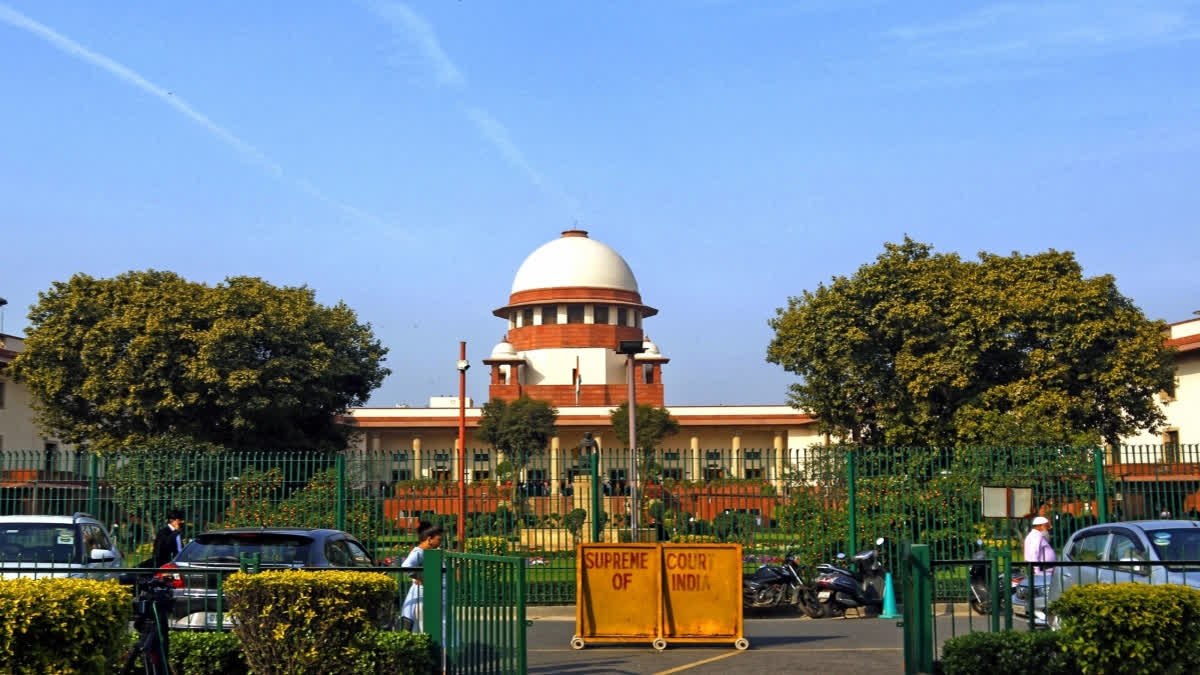New Delhi: A five-judge constitution bench led by Chief Justice of India D Y Chandrachud on Thursday set aside a 2018 decision of the apex court, which directed every order of stay in a civil or criminal trial would have a maximum life of six months. The apex court emphasized that there can't be a direction for automatic vacation of stay after six months.
The bench led by CJI and comprising Justices Abhay S Oka, J B Pardiwala, Pankaj Mithal and Manoj Misra, had reserved the judgment, in December last year, on the petitions filed by the High Court Bar Association Allahabad and others.
Justice Oka, who read out the judgment, said that the bench has not agreed with the directions in Asian Resurfacing. He said that a direction that all interim orders passed by high courts will automatically expire on the lapse of time cannot be issued in exercise of powers under Article 142 of the Constitution.
The bench stressed that constitutional courts should refrain from laying down time-bound schedules for cases pending before any other courts and added that the pattern of pendency of cases in every court including the high court is different. It further added that giving out-of-turn priority for certain cases is best left to the concerned judge, who is aware of the grassroot situation.
Justice Misra wrote a separate and concurring judgment. The detailed judgment will be uploaded later in the day.
The apex court, in 2018, had held that the stay granted by a lower court or high court in civil and criminal cases will automatically expire after six months unless extended specifically.
While reserving the judgment the bench had orally observed that the automatic vacation of stay prejudices the litigant irrespective of the conduct of that litigant, while reserving its verdict on a plea seeking reconsideration of its 2018 judgment.
Senior advocate Rakesh Dwivedi, representing the High Court Bar Association of Allahabad, had argued against the automatic vacation of stay orders and stressed that such a mechanism could interfere with the constitutional structure, particularly Article 226, and may be seen as judicial legislation. He suggested creating separate benches to consider extensions, while citing the importance of a nuanced approach to different case types. Dwivedi cited delay in court proceedings, specifically in certain High Courts such as the Allahabad High Court and the Patna High Court.
Solicitor General Tushar Mehta highlighted instances where contempt cases were filed against judges, for not resuming trials on the strength of Asian Resurfacing, particularly in states like Punjab and Haryana.
On December 1, the Supreme Court expressed reservations with its 2018 judgment on the 'Asian Resurfacing case'. The judgment had ordered that there would be automatic lifting of stay in all civil and criminal matters upon expiry of six-month time.
The previous judgment in case of 'Asian Resurfacing of Road Agency Vs CBI' was delivered on March 28, 2018 by a bench of Justices Adarsh Kumar Goel, R F Nariman and Navin Sinha (all since retired).



